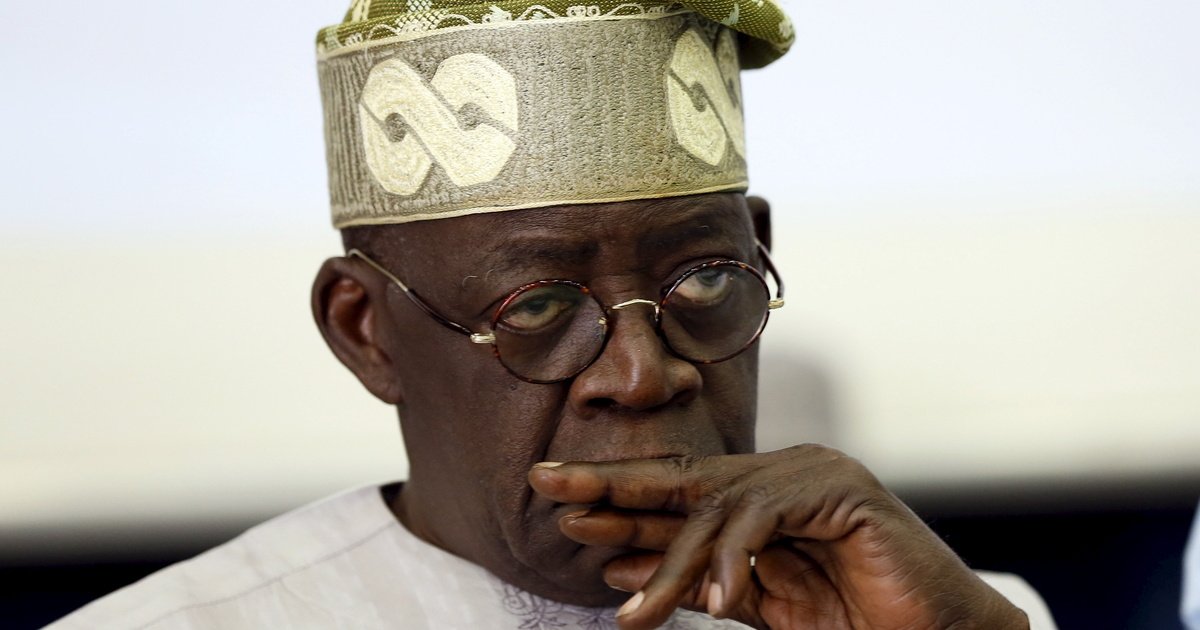In a surreal theatre of modern Nigerian politics, Lagos State, supposedly the nation’s commercial nerve center, was reduced to the scene of a medieval court, where a kneeling governor and genuflecting elders begged a monarch not for justice or dialogue, but for mercy. The “monarch” in question? President Bola Ahmed Tinubu.
In what should be deeply unsettling to every Nigerian with even a modest respect for democratic principles, Governor Babajide Sanwo-Olu, an elected leader of over 20 million Lagosians, was made to grovel, literally prostrate, before the President, his political “father,” in a dramatic reconciliation staged not in the halls of governance, but at Tinubu’s private residence. Surrounded by political godfathers, business moguls, and Tinubu’s long-time cronies, this gathering was less a meeting of public servants and more an ecclesiastical ritual reaffirming one man’s supreme dominion over a state. This is not governance. It is feudalism dressed in agbada.
The very idea that a president of the Federal Republic can hold an elected state governor hostage in a months-long cold war; without public explanation or accountability, and then “forgive” him in an act of political benevolence, is an affront to every tenet of representative democracy. It reveals not just a crisis of personality but a system that enables and even celebrates authoritarian patronage under the guise of party unity and family loyalty.
Let us be clear: Babajide Sanwo-Olu is not a ward of Bola Tinubu. He is not his apprentice, his subordinate, or his “son.” He is the governor of Lagos State, elected by the people to govern with their mandate, not Tinubu’s permission. Yet we are now being told that his political survival, and by extension, the stability of Lagos, depends on the whims of a president who sees the state as his fiefdom.
The fact that an unelected body called the Governor’s Advisory Council (GAC), had to plead on Sanwo-Olu’s behalf, with some members apparently enduring “indignity” to win the president’s favor, is scandalous. That eight political and business heavyweights had to intercede like courtiers in a royal court only deepens the absurdity. What, precisely, were they negotiating? What did Sanwo-Olu do wrong? And why was it not addressed through transparent, institutional channels?
Silence surrounds these questions, because in Tinubu’s Lagos, questions are not for the governed to ask. They are for the “wise men” to whisper in private rooms. The president’s pettiness wasn’t just private. It became unavoidably public when he pointedly snubbed Sanwo-Olu in recent events, triggering widespread speculation that something was amiss. But instead of confronting the issue with clarity, Tinubu’s response was royal decrees and veiled forgiveness: “It’s all over now. All is forgiven.”
What precisely did Sanwo-Olu – or the unnamed others who dared “cross” the president do to incur such wrath? Were they disloyal? Independent? Did they challenge the sacred script written by Bourdillon’s political oracle? We may never know, because the details were deliberately swept under the rug in this grand reconciliation. There was, reportedly, no room for explanation, just pleading and prostration.
And then, with the benevolence of a father finally willing to tolerate a wayward son, Tinubu reportedly declared he would not tamper with the results of the local government primaries. A truly democratic leader would never consider tampering with elections in the first place. That Tinubu’s restraint is presented as a generous act is a terrifying indictment of just how normalized this brand of strongman politics has become.
Sanwo-Olu, for his part, meekly denied the feud even existed, blaming instead “people who are more Catholic than the pope.” But Lagosians are not fools. They saw the president humiliate their governor in public and heard the rumblings of discontent in the corridors of power. They watched as their state’s governance became hostage to palace intrigue and personal vendettas.
The so-called “peace” now being celebrated was not forged through democratic deliberation, but secured through political blackmail, old-boy networks, and demeaning supplication. Lagos may indeed “know peace again,” but it is the peace of a silenced town under the thumb of an empire, not the peace of open governance or institutional respect.
What happened in Lagos should alarm every Nigerian. If the President can hold the most powerful state in the country hostage to his ego, if governors must crawl to his doorstep to be seen as loyal, if party loyalty now trumps constitutional authority; then we are no longer in a democracy. We are in a political cult with a central figure demanding worship, not accountability.
Lagos is not Tinubu’s property. Nigeria is not a family business. And no president, however storied his past or large his following, should be allowed to conflate personal power with public office. The time has come for Nigerians, especially Lagosians, to reject this paternalistic stranglehold masquerading as leadership. True democracy does not require permission from a father. It demands courage from citizens.





